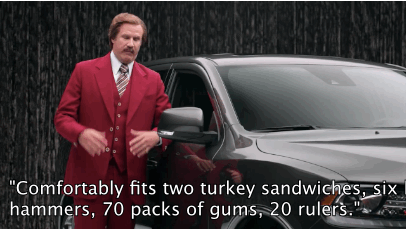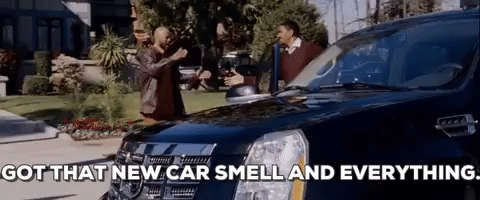We make choices every day based on personal preference: coffee versus tea, boxers versus briefs, etc.
Some financial choices, however, aren’t so clear-cut. After all, we can’t make spending decisions based on preference alone. If we did, we might all be living in luxury for a brief period before landing in bankruptcy.
An obvious, often misunderstood example is buying versus leasing a car. The decision to buy or lease a car seems like one of preference: would you rather always drive a new car at a relatively low monthly payment or finance a car that you’ll someday own outright?
Of course, we have to remind you that, financially, the best way to buy a car is to pay cash for something pre-owned to avoid paying both interest and off-the-lot depreciation.
That said, many people aren’t in a position to pay cash for their cars, and auto loans are the only way they can afford one. Leases, by contrast, allow you to drive a car for a fixed period of time (often three years) while making monthly payments until the auto lease expires.
Why leases are so tempting

“Probably the main advantage to leasing is a lower payment,” says Jerry Love, a member of the National CPA Financial Literacy Commission.
“If you plan to keep the car only a few years — say three years max — then leasing allows you a smaller payment, and you don’t have to worry about the trade-in value.”
The latter concern is important because new cars depreciate the moment you drive them off the lot. And whereas a lease allows you to get a new car every few years, those purchasing a new car will likely hold on to it for much longer, its value dropping with each passing year until it’s time for a trade-in. Allyson Baumeister, a member of the Texas Society of Certified Public Accountants, says:
“The initial cost of purchasing is higher than leasing; this includes a downpayment as well as a higher monthly payment.”
For somebody on a budget, it’s easy to see why leases are so tempting: you get a brand-new car and a monthly payment that’s lower than a car loan.
But leases are a devil in disguise.
For one, leases come with a mileage limit where you’re penalized if you drive over that set amount; these penalties can range from $0.05 – $0.20 a mile. It’s important to determine ahead of time how you’ll use the car (for short- or long-distance driving) and what those mileage restrictions are. A cap of 40,000 miles will allow you more wiggle room than 30,000, but you’ll pay extra upfront.
What’s more, a lease allows for normal wear to the car, but “if the dealership considers the … the vehicle to have wear and tear above [normal] at the end of the lease, they can charge you extra,” Love says. You can get a better idea of what “normal wear” means by quizzing the car dealership and studying the lease terms.
Why buying is better

Love notes that if the dealership is offering 0% financing, and you plan on driving the car for a long time, buying is the way to go. If the financing terms are higher,
“frequently, credit unions will have a favorable rate. And if you have an established banking relationship, you should absolutely check with them for their rate.”
Another member of the Financial Literacy Commission, Clare Levison, notes that car payments will eventually end, whereas lease payments won’t until you turn in the car.
“With buying, eventually you will have paid the car off and no longer have the expense of the monthly lease payment.”
Regardless, “When you lease a car, you make payments for a specified period of time and then at the end of the term you have nothing to show for your money,” Baumeister says.
“You own nothing. However, when you buy a car, at the end of the term, you own a car. You can keep that car indefinitely or sell that car for value.”
Buying vs. leasing cost comparison example
Let’s take a look at how much it might cost to buy vs. lease a new car. You’re planning to get a 2023 Kia Soul, a reliable SUV with generous warranty terms and cargo space.
First, you think about buying. The starting MSRP for this vehicle is $19,890. So if you opt for the most basic trim, the LX, without any customizations, you’re going to be spreading out roughly $20k across however many years you want to take to pay off the loan.
A lot of people go for the six-year or 72-month option, and maybe that works for you too. If you make a down payment of $3,000 and get approved for an interest rate of 5%, with a sales tax rate of 6%, you’ll pay $23,778 to purchase the car or a total of $3,963 per year. After six years, the loan will be paid off.
Now let’s talk about leasing. Same car, but instead of leasing for 72 months you lock into a 36-month lease. This requires a security deposit of $300 and a monthly payment of $250. For the three years of your lease, you’ll spend $3,550 on your car annually. And if you renew your lease for another three years for a total of six, you’ll spend $21,300 total.
As you can see, leasing can be cheaper. In this case, leasing would cost a couple of grand less than buying the same car. But while leasing might technically cost less in many cases, this example doesn’t account for the fact that when you buy a car, you own it. When you lease a car, you borrow it. A lease is a costly commitment but not an asset.
So yes, you very well may end up spending more money when you purchase a car, but you could make a significant portion of it back if you decide to sell it even with depreciation. And of course, you’re free to shop around for the best rates when applying for a new loan or even refinance your car loan to save on interest.
Is leasing ever a smart option?

Here’s the ugly truth: for most people, leasing doesn’t make financial sense. “Buying a car is almost always better than leasing a car,” Baumeister stresses.
There are some exceptions for business owners or others who can deduct certain vehicle costs. For everyone else, leasing a car should be considered a luxury.
Lease a car if you simply love driving a new car every three years and the cost is worth it to you. As long as you’re aware, it’s fine to make a conscious decision to spend more on your cars than might be necessary.
Summary
Why is buying so much better?
Aside from the advantage of ownership giving you an asset — even if it’s a depreciated one — there are other monetary variables to take into account. Baumeister says:
“The annual car insurance cost for a leased car is usually higher than for a purchased car. Also, the driver of a leased car must pay personal property tax on the car. In some states, no personal property tax is owed on a car that you are purchasing. This tax is many times only included in the fine print of a car lease contract.”
No matter which option you choose, shop around. Especially with a purchase, “The exact price of the vehicle can vary greatly within your region of the country,” Love says.
“The terms of a lease or terms of the note can vary greatly, too. Do some research to identify an expected price, then walk into a dealership equipped with the information.”

